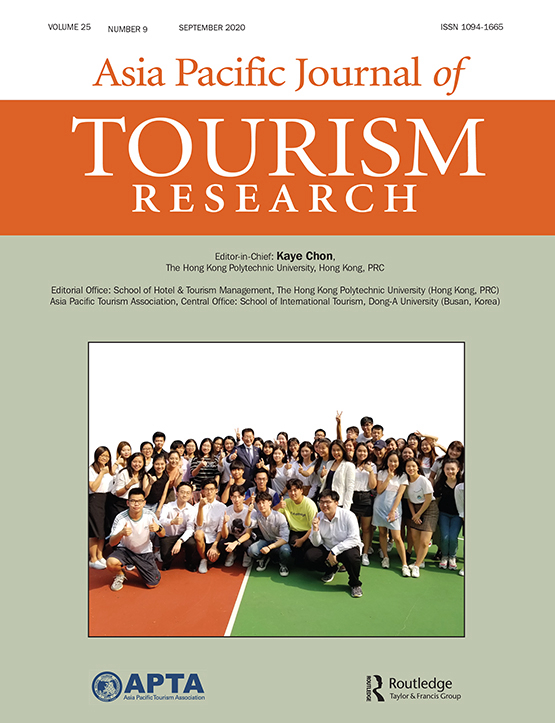How do tourism recovery experiences contribute to knowledge workers’ creativity? The moderating role of travel companion
IF 3.3
3区 管理学
Q1 HOSPITALITY, LEISURE, SPORT & TOURISM
引用次数: 0
Abstract
ABSTRACTTo empirically examine the influencing mechanism and boundary conditions of tourism recovery experiences on knowledge workers' creativity, 837 valid samples were used. The results show that: (a) The tourism recovery experiences (compatibility, extent, away, fascination) could effectively stimulate the creativity of knowledge workers; (b) the perceived recovery level mediates the relationship between tourism recovery experiences and knowledge workers' creativity; (c) the travel companion intimacy has a positive moderating effect between compatibility, extent, away and perceived recovery level. The present research results provide another view of how knowledge workers' creativity is formed and expressed, but also provide practical guidance for “destination-tourist-enterprise government” to create value and achieve mutual benefit.KEYWORDS: Tourism recovery experiencesperceived recovery levelcreativitytravel companion intimacyknowledge workers Disclosure statementNo potential conflict of interest was reported by the author(s).Additional informationFundingThis research was supported by the following agencies: Humanities and Social Science Foundation of Ministry of Education of China (grant number: 22YJC860003); 2022 project of Guangzhou Philosophy and Social Sciences Planning (grant number: 2022GZGJ80).旅游复原体验如何促进知识型员工的创造力?旅伴的调节作用
摘要利用837个有效样本,实证研究了旅游恢复体验对知识型员工创造力的影响机制和边界条件。结果表明:(a)旅游恢复体验(兼容性、程度、距离感、吸引力)能有效激发知识型员工的创造力;(b)知觉恢复水平在旅游恢复体验与知识型员工创造力之间起中介作用;(c)旅伴亲密度在兼容性、程度、距离和感知恢复水平之间具有正向调节作用。本文的研究成果为了解知识工作者创造力的形成和表达提供了另一种视角,也为“目的地-游客-企业政府”创造价值、实现互利共赢提供了实践指导。关键词:旅游恢复体验感知恢复水平创造性旅伴亲密度知识工作者披露声明作者未报告潜在利益冲突本研究由教育部人文社科基金资助(批准号:22YJC860003);广州市哲学社会科学规划2022项目(批准号:2022GZGJ80)。
本文章由计算机程序翻译,如有差异,请以英文原文为准。
求助全文
约1分钟内获得全文
求助全文
来源期刊

Asia Pacific Journal of Tourism Research
HOSPITALITY, LEISURE, SPORT & TOURISM-
CiteScore
6.80
自引率
4.00%
发文量
31
期刊介绍:
Asia Pacific Journal of Tourism Research is the official journal of the Asia Pacific Tourism Association (Founded September 1995) and seeks to publish both empirically and theoretically based articles which advance and foster knowledge of tourism as it relates to the Asia Pacific region. The Journal welcomes submissions of full length articles and critical reviews on major issues with relevance to tourism in the Asia Pacific region.
 求助内容:
求助内容: 应助结果提醒方式:
应助结果提醒方式:


